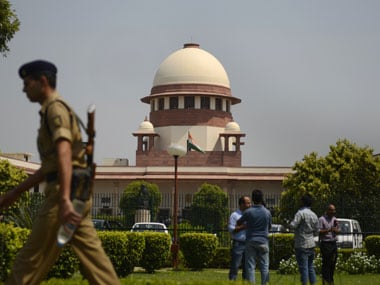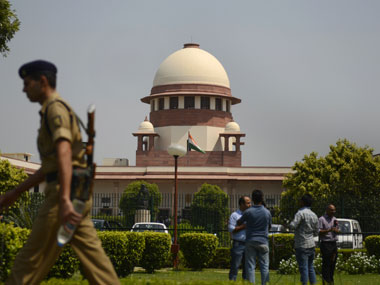On Tuesday, the Supreme Court passed a landmark judgment on the practice of talaq-e-biddat or instant triple talaq, calling it “manifestly arbitrary” and against the basic tenets of Islam". The court split 3:2 with the majority terming the practice illegal and unconstitutional. However, the minority — which includes the outgoing Chief Justice JS Khehar — asked the Centre to bring in legislation to govern the practice. [caption id=“attachment_3960279” align=“alignleft” width=“380”]  Representational image. AFP[/caption] With this verdict, India joins the list of 19 other countries, including Pakistan and Egypt , which have banned the practice. The apex court, in its judgment, stated that under the practice of instant triple talaq, women are subjected to divorce in one go — without the intervention of choice of legal action — over emails, Skype and WhatsApp and added that this was unconstitutional as it violated the right to equality under Article 14 of the Constitution. Narendra Modi, in his tweets, hailed the verdict as “historic” and said it would grant equality to Muslim women and would be a powerful measure for female empowerment. But was this the secular and progressive intervention that the Muslim women were seeking? In my opinion, it wasn’t. Throughout the judgment, the bench grappled with the never-ending debate between human rights and cultural relativism. In this struggle between freedom of religion and the fundamental rights of women, the latter seems subordinate given the deliberations of the judges on the issue. In fact, Chief Justice Khehar also remarked, at some point: “It is not open to a court to accept an egalitarian approach over a practice which constitutes an integral part of religion.” Kamal Farooqui, executive member of the All India Muslim Personal Law Board (AIMPLB), put the dichotomy between religion and fundamental rights in very clear terms: “Court order has affected the rights of religious minority to practice their religion. So it will be having wide ramifications… our feeling is that the judgment does not follow Constitutional guarantees.” One may ask: What does the verdict do for gender equality and women’s rights? The answer: Not much. Because while talaq-e-biddat has been declared unconstitutional, talaq-e-sunnat still exists, and therefore, Muslim men still hold the right to pronounce divorce against their wives without resorting to legal action. While the struggle of women to move the apex court was rewarded, this verdict does not change the dynamics of gender parity. Lastly, the judgment places a high value on the institution of marriage with regard to women’s rights. The bench debated the nature of Hindu marriage as a “sacrament” and Muslim marriage as a “contract” when the issue was clear: Do Muslim women have the same rights in marriage as Muslim men? By bringing up the nature of marriage and the concept of personal laws, the Supreme Court yet again subordinated the role and rights of women. Only Justice Kurian’s opinion gives us a full background of the practice, and what the next steps should be, without meandering into irrelevant conversations. His opinion puts out whether or not triple talaq has any legal sanctity, and it is based on Shamim Ara v. State of UP and Anr which held that triple talaq “lacks legal sanctity”. In conclusion, while the judgment has been heralded as a game changer, it adds very little legal value in the larger scheme of things. The reason for this may be because Muslim women are trapped between religious ideology, which is often laden with “patriarchal tyranny” and the concept of secular and universalist constitutional rights. As Zakia Soman of the Bhartiya Muslim Mahila Andolan said: “… the battle for women’s rights will go on.” The full text of the Supreme Court judgment is available here.
On Tuesday, the Supreme Court passed a landmark judgment on the practice of talaq-e-biddat or instant triple talaq, calling it “manifestly arbitrary” and against the basic tenets of Islam".
Advertisement
End of Article


)




